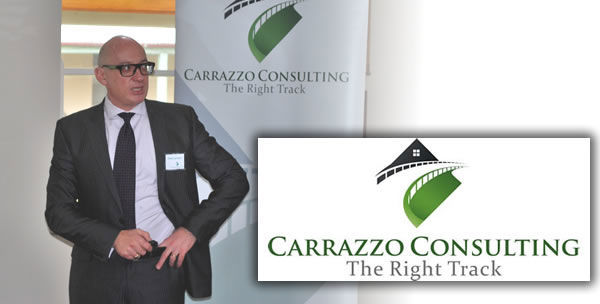For primary producer breeders and many rural based racing establishments, trying to attract the right employees has always been a challenge.

Well-meaning employers offering inducements such as cars, housing, relocation expenses etc often overlook the potential Fringe Benefits Tax (‘FBT’) implications of doing so, a tax that can creep up and add a nasty ‘on-cost’ for employers.
Like any employer, primary producers may be liable to pay FBT on noncash ‘fringe benefits’ provided to employees or their associates (e.g., family members of employees), in respect of the employee’s employment. However, the cost of providing fringe benefits and any FBT liability is generally tax deductible. Given the nature of primary production, it is not uncommon for fringe benefits to be provided to family members working in the business.
This article works through what FBT issues primary producer employers should be mindful of and, in addition, outlines the type of benefits that are tax deductible, yet either attract NIL or reduced FBT.
On a positive note, I conclude the article with a special Covid 19 related concession the ATO have provided in relation to car benefits that relate to many primary producer employees.
- Fringe benefits provided to family members
Where a family member works in a primary production business, a common issue that arises is whether any non-cash benefits provided to the worker (or their associates) are in respect of their employment (which is potentially subject to FBT), or just a normal incident of the family relationship (which is not usually subject to FBT). For example, FBT would not usually apply to the value of accommodation and meals provided in the family home to a primary producer’s children who work on the family farm.
By contrast, if a family-owned company operates the farm and claims deductions for costs related to a homestead that is occupied rent-free by family members who are shareholders of the company and work on the farm, the arrangement is essentially being treated as a business (not a family) one by the parties for tax purposes. In this case, the benefit is provided to the family members in respect of their employment (and not because of their shareholding) and may give rise to an FBT liability.
- Common FBT concessions for farm employees
There are a range of concessions available to employers that may reduce or eliminate any FBT liability in respect of benefits provided to employees (whether family or unrelated employees).
The following summary lists some common (mainly remote area) FBT concessions that may be relevant to primary producer employers. N.B.A ‘remote area’ is, broadly, a location that is not in, or adjacent to, an eligible urban area (being an urban centre which had a specified population size in the 1981 Census). Refer to the ATO document, ‘Fringe benefits tax – remote areas’ for a comprehensive list of remote areas for FBT purposes.
- FBT Exemption – remote area housing
An exemption applies if an employer provides an employee a right to occupy accommodation in a remote area as their usual place of residence, if certain conditions are met (e.g., the benefit is provided due to industry custom or a lack of suitable accommodation nearby).
- FBT Exemption – meals on working days
An exemption applies where meals (except meal entertainment) are provided to employees for consumption on working days if the business is carried on in a remote area.
- FBT Reduction – remote area housing assistance
The cost of certain benefits related to providing employees in remote areas with housing assistance (e.g., paying their rent or home loan interest or providing a loan benefit) for a dwelling that is their usual place of residence may be eligible for a 50% reduction.
- FBT Reduction – remote area residential fuel
The cost of residential fuel provided to an employee (e.g., paying or reimbursing gas or electricity costs) for use in connection with a remote area housing benefit may be reduced by 50%.
- FBT Reduction – remote area transport
The cost of transport (including accommodation and meals) provided to remote area employees to take leave of not less than three days, may be reduced by up to 50%.
- FBT Exemption – private use of vehicles
The private use of certain vehicles and motor bikes (e.g., farm bikes or utes) is FBT-exempt, if the private travel is limited to home to work (farm) travel and other minor, infrequent, or irregular use.
- FBT concessions for employees relocating for work
Given that primary production businesses typically operate outside regional areas in Australia, it can be difficult for farmers to source labour from the local area. Therefore, it may be necessary to offer individuals (and their family members) incentives to relocate to take up work.
Generally, such costs are not deductible to the employee, broadly because the nexus with deriving income is considered too remote and the expenses are of a private nature. However, where the expenditure is incurred by an employer (e.g., by paying or reimbursing the employee’s costs), it is generally tax deductible as the expenditure is necessarily incurred in carrying on business. The expenditure is also likely to give rise to a fringe benefit, and an FBT liability for the employer. However, there are a range of fringe benefits that may be provided to an employee who relocates for work, that are subject to concessional treatment.
TAX TIP – Employees relocating v. living away from home
Primary producer employers must ensure they correctly distinguish between employees who are living away from home (‘LAFH’) and those who are relocating. Broadly, an employee is taken to be LAFH if they are required to move away from their ‘usual place of residence’ on a temporary basis in order to discharge their work duties. By contrast, an employee who relocates generally has no clear intention to return home once work at the new location ceases.
The following summary sets out the FBT treatment of common relocation benefits that may be provided by primary producer employers to new or existing employees who are required to relocate from their usual place of residence to carry out their work duties.
- FBT benefit - removal and/or storage of household effects
An FBT exemption applies to certain benefits that meet the costs of removal and/or storage of the household effects of an employee who is required to relocate, if the removal or storage occurs within 12 months from the day the employee starts work at the new location.
- FBT benefit - incidental costs relating to the sale or acquisition of a dwelling
An FBT exemption applies to certain benefits which meet the incidental costs (excludes insurance and rates) incurred in the sale or purchase of the usual place of residence of an employee who is required to relocate, where various conditions are met.
- FBT benefit - connection or reconnection of certain utilities
An FBT exemption applies to certain benefits that meet the costs of connecting or reconnecting gas, electricity or telephone services to accommodation that an employee leases at the new locality, where the employee is required to relocate.
- FBT benefit - relocation transport
An FBT exemption applies to certain benefits that meet the costs of providing relocation transport (i.e., travel costs, including the cost of any meals and accommodation en route to the new location) to an employee (and their family members) who is required to relocate.
- FBT benefit - relocation transport – ‘cents per km’ reimbursement (employee’s car)
Under this concession, where an employee is reimbursed on a ‘cents per km basis’ based on the ATO’s cents per km rate for using their own car as relocation transport, the cost of the expense payment benefit is reduced by a prescribed amount.
- FBT benefit - temporary accommodation at the former or new location
The cost of certain fringe benefits is reduced if they are associated with providing temporary accommodation (including the hire of household goods) to an employee who is required to relocate.
- FBT benefit - temporary accommodation meals
The cost of meals provided to an employee (and their family) who is relocating, while staying in temporary accommodation eligible for exemption (refer to 6 above) is reduced by $2 per meal for an adult and $1 per meal for a child under 12.
- FBT benefit - engagement of a relocation consultant
An FBT exemption applies to certain benefits associated with the costs of engaging a relocation consultation to assist an employee and their family to relocate (e.g., by obtaining removalist quotes, finding accommodation and/or assisting with lease negotiations).
- ATO announces major FBT windfall for cars stored at an employee’s home during COVID-19
In order to understand the nature of the COVID-19 concession for car fringe benefits, and the circumstances in which it applies, it is firstly necessary to consider when a car fringe benefit arises. In this regard, in broad terms, a car fringe benefit arises where inter alia:
- The car is “deemed to be available” for the private use of an employee or associate because the car is: a) garaged or kept at or near a place of residence of the employee or associate or b) not on the employer’s business premises and the employee or associate has the use or custody and control of the car, or, is otherwise entitled to apply the car to private use
One consequence of the COVID-19 pandemic with respect to car fringe benefits is that many employees (and/or associates) have stored an employer-provided car at their home for a greater period than would otherwise have been the case.
In response to possible harsh FBT implications, the ATO released the following factsheet: ‘COVID-19 and car fringe benefits’, in which it outlined an important concession that will allow some employers to reduce their FBT exposure for cars garaged at an employee’s home during the COVID-19 pandemic. The purpose of this section of the notes is to outline the eligibility criteria that must be satisfied to access the COVID-19 concession for car fringe benefits and illustrate how the cost of a car fringe benefit is calculated in circumstances where the concession applies. Without going through all the criteria, to meet them it is crucial that a) the employer must lodge their FBT return using the ‘operating cost’ method, b) an employee garaged the car at their home over all or part of the 2021 FBT year and c) during the period the car was garaged at the home of an employee, it was not driven at all or was only driven briefly for the purpose of maintaining the car.
You are welcome to contact me if you wish me to clarify or expand upon any of the matters raised in this article.
Prepared by:
PAUL CARRAZZO CA
Carrazzo Consulting Pty Ltd
Chartered Accountants
801 Glenferrie Road, Hawthorn, VIC, 3122
TEL: (03) 9982 1000
FAX: (03) 9329 8355
MOB: 0417 549 347
E-mail: paul.carrazzo@carrazzo.com.au or team@carrazzo.com.au
Web: www.carrazzo.com.au










